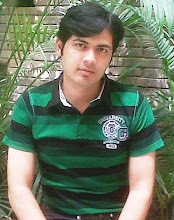Jyotirindra Basu, popularly known as Jyoti Basu , the Marxist patriarch , one of India's tallest political leaders whose influence extended far beyond his home state of West Bengal that he ruled for a record 23 years, heading five successive Left Front governments passed away on January 17, 2010.
Millions of words have been uttered in Media about Basu. This article in short brings out some important points about his life:
Millions of words have been uttered in Media about Basu. This article in short brings out some important points about his life:

- Born July 8, 1914 in Kolkata, Basu, son of a doctor, had his schooling in Christian Missionary-run Loreto and St. Xavier's. He graduated from the Presidency College with English honours in 1935.
- Nishikanta Basu, father of Jyoti Basu was a doctor from the village of Bardi in Dhaka District, East Bengal (now in Bangladesh), while Hemalata Basu, his mother was a housewife.
- It was Loreto School at Dharmatala, Kolkata, in 1920 where Basu's schooling start and his father shortened his name and he became Jyoti Basu. He was moved to St. Xavier's School in 1925. Completed his undergraduate education and received honours in English from the Hindu.
- In 1935, he went to England for higher studies in Law. Here, Basu was introduced to the activities of politics through the Communist Party of Great Britain. In England he was actively associated with the India League and the Federation of Indian Students in England. He was inspired by noted Communist Philosopher and prolific writer Rajani Palme Dutt.
- In 1940 after completion of studies, he qualified as a Barrister at the Middle Temple, however returned to India in same
- From 1944 started involving in trade union activities. In the same year CPI delegated him to work amongst the railway labourers. He became the general secretary of the merged B.N. Railway Workers Union and B.D. Rail Road Workers Union.
- In 1946 he was elected to the Bengal Legislative Assembly for the first time.
- After partition, he was arrested once when CPI was banned.
- In Fifties he was joint leader of the West Bengal Communists with Parmode Das Gupta.
- Following the division of the Communist Party of India in 1964, anti-Congress nature of Bengal Communism led Basu to align with the Communist Party of India (CPI(M).
- He became Deputy Chief Minister in a coalition United Front government in Bengal in which the CPI (M) was one of the leading parties in 1967.
- In February 1969 elections CPI (M) emerged as the largest party. Basu again become Deputy Chief Minister in a United Front government that lasted until 1971.
- In 1977 he became Chief Minister of West Bengal and his leadership the CPI (M) has won five successive elections since (1982, 1987, 1992, 1996). It is the largest democratically elected Communist movement in the world.
- He was a highly reputed political leader and, following the national elections to parliament (1996), was considered a possible candidate for Prime Minister. There was a consensus about to become about Basu being PM, however, CPI (M) Politburo decided not to participate in the government.
This decision that he later termed a historic blunder.
- In 2000, he resigned from the West Bengal Chief Ministership due to health reasons, and was succeeded by fellow CPI (M) politician Buddhadeb Bhattacharya.
Basu holds the record for being the longest-serving Chief Minister in Indian political history.
- In 2004, Basu and CPI-M stalwart Harkishan Singh Surjeet impressed upon the Left parties to lend support to the Congress-led United Progressive Alliance (UPA) government of Manmohan Singh.

0 comments on "Marxist Patriarch :Jyoti Basu"
Subscribe in a Reader
Post a Comment